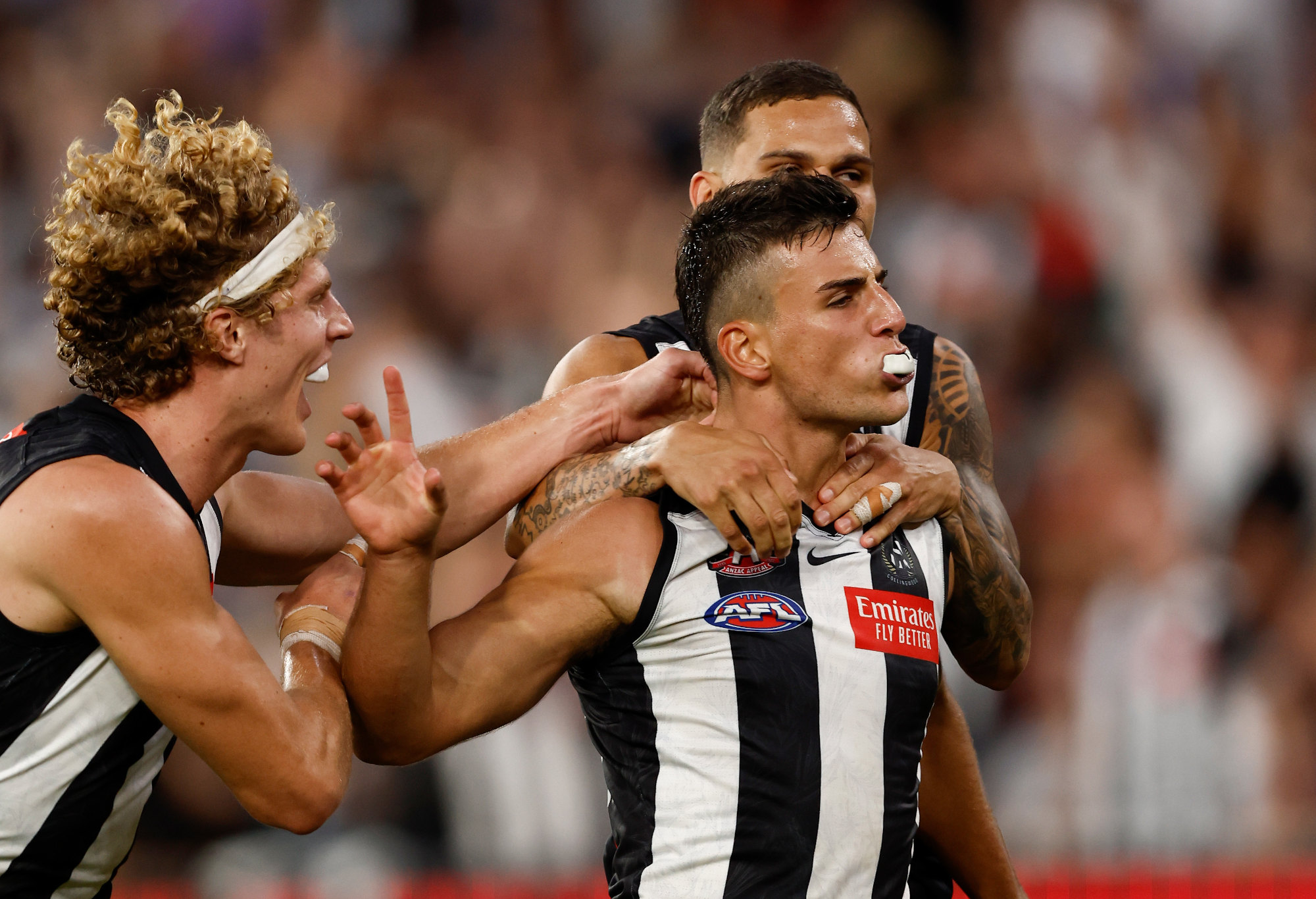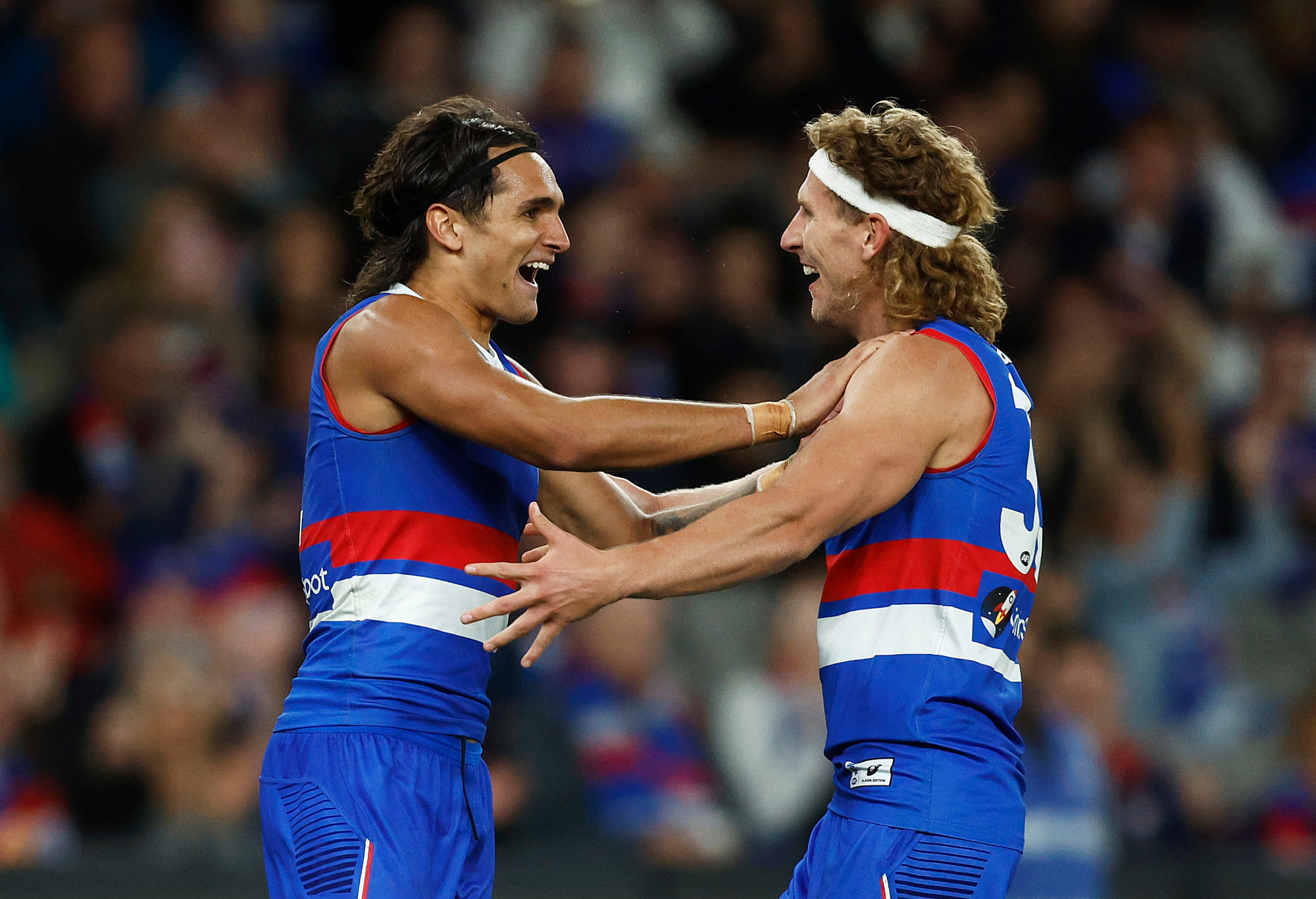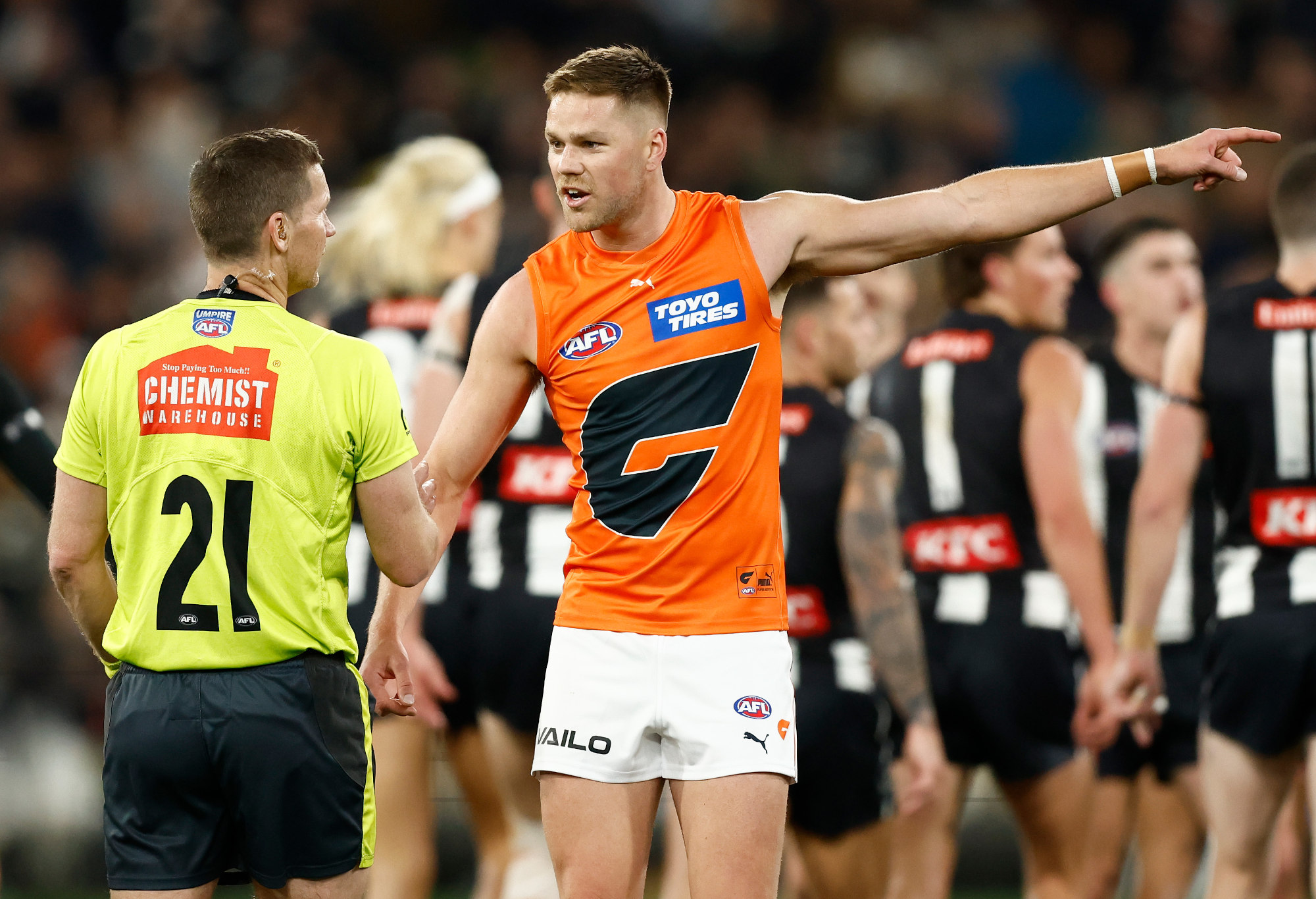St Kilda are in peril yet again - but are their problems due to Ross Lyon's coaching or the quality of the cattle?
For too long, St Kilda have alternated between minnow and mid-table - and it’s hard to see when it’s going to get better.
Career-length contract extensions are in vogue, but are they the best thing for a club to do?
First off, power to the players themselves – if the money and security is there, you absolutely take it.
But with Aaron Naughton signing with the Wester Bulldogs until the end of 2032, becoming the seventh player to be locked in beyond this decade, it feels as though the weight of trying to appease supporter bases has mixed with the fear of a new Tasmanian club entering into the competition, with a splash of desperation entering the fray.
The other players signed to the end of 2030 and beyond are Harry McKay, Josh Daicos, Brennan Cox, Clayton Oliver and Nick Blakey: all great players, but as talented as they are, their clubs are ultimately handcuffing themselves based on current output.
Already, Oliver is in the middle of preliminary trade discussions, and McKay always has rumours surrounding him.
Even when it comes to the class of 2029 – Jake Soligo, Josh Rachele, Eric Hipwood, Jack Payne, Charlie Curnow, Nick Daicos, Jye Amiss, Luke Jackson, Harry Himmelberg, Josh Kelly, Christian Petracca, Jy Simpkin, Nick Larkey, Jacob Hopper, Tim Taranto and Callum Mills – you could argue against the validity of almost all of their long-term deals.
Some of these players have earned contracts based on potential, some saw clubs desperate to retain their current services and some were used to poach them in trade discussions. Then there’s Daicos, who should be signed until the end of the century.

Nick Daicos. (Photo by Michael Willson/AFL Photos via Getty Images)
But at a time when Brodie Grundy is seemingly moving to his third club in three years after signing a massive long-term deal as the league’s best ruckman just three years ago, with all these rumours around other contracted players, it’s clear that there’s a bad case of short-term thinking in these long-term decisions.
This isn’t a new thing: six and seven-year deals have been around for a while in this modern era, going back as far as the famous Alastair Lynch 10-year contract at Brisbane, while Buddy Franklin repaid his nine-year contract in spades for what he did for Sydney. Dustin Martin’s seven-year contract was well worth it for Richmond, too.
But what was once a bargaining chip of faith has now turned into a potentially overplayed, fictitious approach to valuing players.
It’s kind of like buying a new car – it’ll be the best on the market for the time being once purchased, but it immediately depreciates in value and will continue to do so over the course of its life.
So what makes the long-term contract worth it for the clubs? The true success seen in rare examples has been from legendary figures of the game having an impact both on and off the field for their respective clubs – see Franklin and Martin – and leaving them in a far better position than where they were before.
Would clubs measure their own level of success simply by players actually playing out their contract there?
Contracts can carry negative value, let’s not forget. Gold Coast signed players to long-term deals and then had to ship a couple of them out – along with the odd high draft pick – to get them off the books.
Collingwood’s won a flag after the Grundy debacle, but 2020 and 2021 weren’t great years for the club; internally, the struggles that ended up getting played out in the media didn’t make for a positive locker room.
For Naughton himself, it’s such a simple decision. He’s been offered the security of a long contract, which ensures his financial future more than anything.
His contract is set in stone so even if there’s some sort of falling out with the Bulldogs, he’s locked in for life, and any potential other suitor would need to take on the remainder of that lucractive deal.

Jamarra Ugle-Hagan celebrates with Aaron Naughton after kicking a goal. (Photo by Daniel Pockett/Getty Images)
From the Bulldogs’ perspective, it’s a strange time They’re under a lot of pressure, the coaching setup is volatile, head coach Luke Beverdige has probably underperformed and there’s a whole lot up in the air.
Signing Naughton for this long gives a temporary boost to the supporters; securing the talents of a fan favourite for nearly a decade garners a ‘cheap pop’ and perhaps a temporary buffer from criticism from their stakeholders.
There are enough positions on a footy field to be able to adjust tactically, and Naughton himself is a versatile enough player to adapt to a new style if or when a coaching change comes through, which seems likely in the next nine years.
But when you commit to a player for this long, you’re also ultimately committing to cater to their needs. It’s why even though the likes of Oliver and Grundy are and were genuine superstars of the league with arguments to be the best player in it at some stage, signing them to ludicrous contracts when they’re only proficient in a singular style of game is almost an act of negligence on their clubs’ behalf.
However, we’re only going to see more and more of these sorts of deals, which may end up evening everything out for most teams in the league.
Under the new Collective Bargaining Agreement, the top draftees will have to sign three-year deals with the clubs that select them. Use that as a starting point, expand to young stars of the league and even established ones that are approaching free agency, and decade-long contracts seem to be inevitable.
On face value for instance, Himmelberg is a really good player, but the hand of GWS was forced into signing him until 2029 because of the way in which rival clubs have approached contract negotiations.
Clubs flippantly offering six, seven, or even eight-year deals is a huge tick for player power, but also another example of Americanising the game. We have a lot of superstars going around, but very few are worthy of a Patrick Mahomes-style 10-year deal, even though we’re on the verge of handing them out to anyone as a price for loyalty.
The NBA doesn’t allow for these contracts, ultimately keeping franchises in check (as much as possible, because even the Washington Wizards can stuff that up), and it provides flexibility to the owners of the contract while allowing players to maximise their earnings if they’re good enough.

Harry Himmelberg speaks with AFL field umpire Simon Meredith. (Photo by Michael Willson/AFL Photos via Getty Images)
In the AFL, with Tasmania joining the competition in a few years’ time, we’re going to see clubs signing their players well into the future hoping for loyalty, but also trying to create some sort of non-existent leverage to deal with them in the future, hoping they’ve bought into one of those vehicles that magically appreciates in value when it suits them.
The movement to long-term contracts is a great result for players who put their bodies on the line for many reasons, our entertainment included, and that in itself should be celebrated.
But clubs committing to these massive deals has gone from a unique reward for the face of a franchise like a Franklin or Martin, to an act of desperation under the guise of making stakeholders happy.
Full credit to Aaron Naughton, a talented player who now owns the longest-running contract in the AFL.
Let’s hope the Bulldogs are more Sydney or Richmond and less Collingwood or Melbourne when history judges whether they’ve made the right decision.